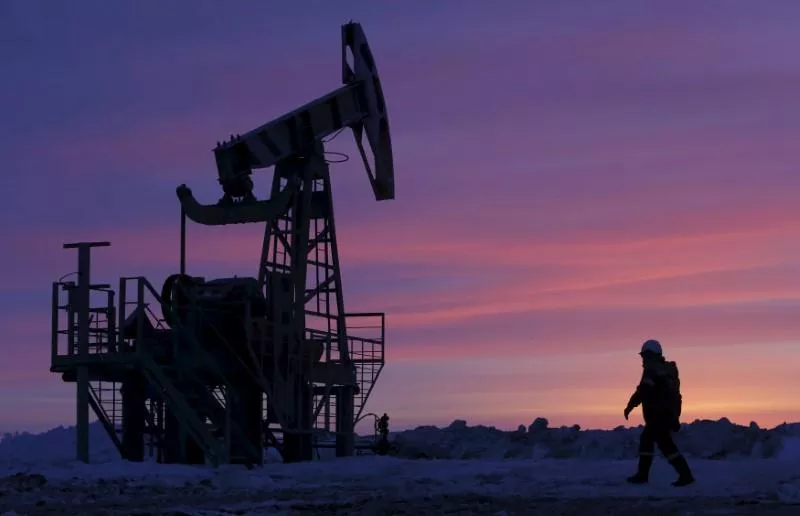Cheap oil, easy money but no respite from virus
Investors will anxiously watch for coordinated response to fight global health crisis
KARACHI: The mood was tense in the 178th extraordinary OPEC+ meeting in Vienna, as anticipated by the market participants.Irrespective of the exact sequence of events unfolded during the meeting and speculation about the outcome, the crude prices plunged to levels only seen during the 1991 Gulf War.
The oil market, which was already dealing with demand destruction from the US-China trade war and the coronavirus crisis, could not withstand the supply-side woes. The meeting, which was supposed to arrive at a consensus on extending production cut by 1.5 million barrels per day (bpd), rather ended up with all the members declaring to pump oil at will. Saudi Arabia has since intended to ramp up production to 13 million bpd. Market participants believe that the move seems to be directed towards the weaker US shale players sitting on the verge of bankruptcy.
However, International Energy Agency Executive Director Fatih Birol is not much worried about the impact of lower oil prices on US shale, instead he is more worried about the implications for many major crude-producing nations such as Iraq, Angola and Nigeria under extraordinary financial and social pressure, especially in the backdrop of the coronavirus crisis.
Before the market could contemplate that the recovery in crude oil prices after an epic 30% single-day fall on March 9 was a “dead cat bounce” or a real deal, the World Health Organisation (WHO) declared coronavirus as a pandemic.
This is where all hell broke loose in both equities and commodities markets because of the fear of more demand destruction, isolation and economic slowdown that may extend even into the next half of the year.
Even the statement to reduce the policy rate by 50 basis points by the head of the US central bank, namely Federal Reserve, and the Bank of England could not calm down nervous investors, who were dumping riskier assets such as stocks and commodities, and even gold, to take refuge in the bond market.
In fact, the statement by European Central Bank head Christine Lagarde came short of investors’ expectations and did more damage than good.
Markets are not very impressed with all these monetary easing as they know that putting more money in the pocket of businesses and people through cheap credit will not make them go on spending/expanding spree or planning a spring break in an exotic location considering the fact that they are advised against all that due to the fear of spreading or contracting virus and further economic slowdown. Back at home the wild gyration of more than -5% in the KSE-100 index triggered the circuit-breaker mechanism (to calm down market through a halt to trading for 45 minutes) thrice in a week mainly on the back of sell-off by foreigners due to the fear of currency devaluation and cut in interest rate in the monetary policy announcement on March 17.
The exodus of foreigners from both equity and debt markets caused some panic even among local investors. Market consensus of at least a 100-basis-point cut is likely to be endorsed considering a recent statement by Prime Minister Imran Khan and the air of monetary easing around the globe.
The approach so far by the countries is more inward-looking, isolated, issuing random advisories for public gathering and travel bans as well as various other knee-jerk reactions rather than adopting a more unified approach on how to fight the pandemic on a global scale, which is similar to what they did in the past in the case of H1NI and SARS. Although the markets pared some losses on the last trading day of the previous week, going forward the investors globally will sit at the edge of their seats and anxiously watch for an internationally coordinated response to fight the global health crisis including clinical testing.
The writer is a financial market enthusiast and attached to Pakistan’s stocks, commodities and emerging technology
Published in The Express Tribune, March 16th, 2020.
Like Business on Facebook, follow @TribuneBiz on Twitter to stay informed and join in the conversation.


COMMENTS
Comments are moderated and generally will be posted if they are on-topic and not abusive.
For more information, please see our Comments FAQ